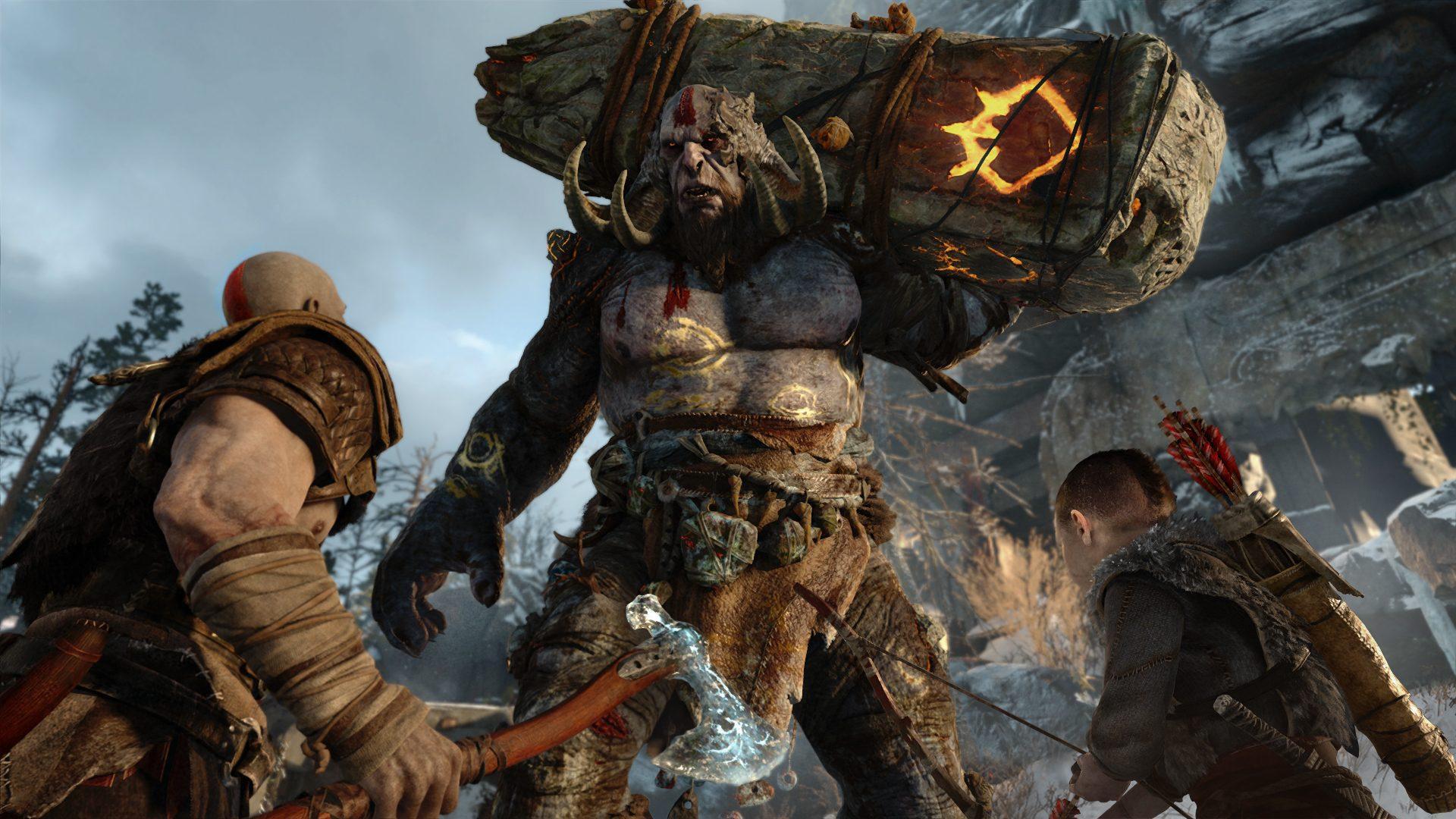God of War review round-up: Reboot heralded as one of the best games ever made for PS4
The game has rehabilitated its central character, and in so doing revive a tired and over-familiar series

Your support helps us to tell the story
From reproductive rights to climate change to Big Tech, The Independent is on the ground when the story is developing. Whether it's investigating the financials of Elon Musk's pro-Trump PAC or producing our latest documentary, 'The A Word', which shines a light on the American women fighting for reproductive rights, we know how important it is to parse out the facts from the messaging.
At such a critical moment in US history, we need reporters on the ground. Your donation allows us to keep sending journalists to speak to both sides of the story.
The Independent is trusted by Americans across the entire political spectrum. And unlike many other quality news outlets, we choose not to lock Americans out of our reporting and analysis with paywalls. We believe quality journalism should be available to everyone, paid for by those who can afford it.
Your support makes all the difference.God of War has been quickly heralded as a critical success by almost everyone who has played it.
The new title, which will be released exclusively on PlayStation 4 on 20 April, has already been called one of the best games ever made for the platform.
The series first debuted in 2005 for the PlayStation 2. But this game has been widely seen as a reboot of that series – all the while serving as a sequel and a development of it, too.
"It’s a transformative, introspective sequel, taking up the Herculean task of shunting a series that, for as thrilling as its spectacle was, epitomized an embarrassing adolescent phase of games into something resembling actual maturity," writes the AV Club. The same review noted that beyond the look of its main character Kratos there was little recognisable – and that the game had thereby succeeded in breaking through its previous problems.
The success of the game was not simply in its revival of a somewhat tired and certainly familiar world. It has actually managed to rehabilitate a character who had become not simply boring but also unlikeable.
In doing so, it seems to propose a different future for the series – and perhaps for gaming in general.
"Though it takes place in the same timeline as the previous games, set years after God of War III, it’s a radical rethinking of what it means to play a God of War game and tell a God of War story," writes Vice's Waypoint.
Even the more critical reviews noted that they were ultimately won over in the end.
"It feels like more of a trend follower than a trendsetter, a pastiche of ideas," Kotaku concludes. "But they are good ideas, done well enough to bring a once-stale series back up from the depths of Helheim."
Similarly, the Verge noted that the game was not free from problems.
"There are some minor nitpicks — the narrative’s heavy use of magical MacGuffins, a needlessly complex loot system, and an over-reliance on particularly gruesome kills — but they do little to detract from the overall experience," the site writes in its review. "On their own, the various elements that make up God of War don’t sound especially unique or interesting.
"But it’s the way they work together — how the story informs the action and vice versa — that makes it memorable. God of War takes a one-dimensional series and turns it into something with depth and emotion."
It was that kind of approach that was praised through early reviews.
"God of War is, in a single word, holistic," writes Polygon. "Every aspect is excellent on its own, but more importantly, it all serves and accentuates the larger vision. Some die-hard fans may fear this isn’t really God of War. I suppose they’re right. It’s even better."
Join our commenting forum
Join thought-provoking conversations, follow other Independent readers and see their replies
Comments